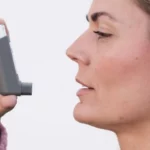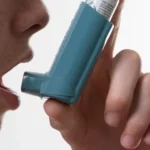Best Antihistamines for Asthma Control – What You Need to Know
Managing asthma isn’t always as simple as just taking an inhaler. Sometimes, allergies play a huge role in triggering asthma symptoms, and this is where antihistamines come in. If you’re wondering whether antihistamines can help you control your asthma, you’re in the right place. Let’s dive into everything you need to know about antihistamines and asthma, including which ones might be the best for asthma control!

What Exactly Are Antihistamines?
Before we get into which antihistamines are best for asthma control, let’s take a moment to understand what antihistamines actually are. These are medications that block histamine, a chemical released by your body during an allergic reaction. Histamine causes symptoms like sneezing, itching, and swelling—stuff that can really mess with your day. Antihistamines can help reduce these symptoms, making life a lot easier if you’re dealing with allergies that might trigger asthma.
Can Antihistamines Help with Asthma?
Asthma is a chronic condition where your airways become inflamed and narrow, making it harder to breathe. This can be triggered by a variety of factors, including allergens like pollen, dust mites, mold, and pet dander. Now, antihistamines aren’t going to directly treat the inflammation in your airways, but they can help prevent allergic reactions from happening in the first place.
When you have asthma and an allergy flare-up, the combination of the two can make things worse. Asthma symptoms like wheezing, shortness of breath, and chest tightness can get triggered by an allergy response. By blocking histamine, antihistamines can reduce allergy-related symptoms, which in turn might help control asthma triggers.

The Best Antihistamines for Asthma Control
Alright, let’s get to the good stuff—what are the best antihistamines you can use if you’ve got asthma? There are two main types of antihistamines: first-generation antihistamines and second-generation antihistamines. Let’s break them down so you can figure out which one might work best for your asthma management.
1. Second-Generation Antihistamines – The Safer Option
Second-generation antihistamines are often considered the better choice when it comes to asthma. These meds tend to have fewer side effects and are less likely to cause drowsiness. So, if you need to keep your energy up throughout the day, these are a great pick.
- Loratadine (Claritin): Loratadine is one of the most common over-the-counter antihistamines. It works by blocking the effects of histamine without making you feel sleepy, so you can stay active and alert while preventing allergy-induced asthma symptoms.
- Cetirizine (Zyrtec): Cetirizine is another second-generation option. It’s known for being a bit more potent than loratadine, so if you’re dealing with stronger allergy symptoms, it could be a solid choice for you. The downside? It can cause some mild drowsiness in certain people, but it’s generally better tolerated than first-gen antihistamines.
- Fexofenadine (Allegra): This one is great for reducing allergy symptoms without making you drowsy. If you need something non-sedating and long-lasting, fexofenadine is an excellent choice to consider.
These antihistamines can be used on their own or in combination with other asthma medications, such as inhalers, to help manage your symptoms more effectively.
2. First-Generation Antihistamines – Use with Caution
First-generation antihistamines, like Diphenhydramine (Benadryl), Chlorpheniramine, and Promethazine, can help reduce allergy symptoms too. However, these medications are more likely to cause drowsiness, and they might even make your asthma symptoms worse in some cases. Why? Because they can dry up mucus in your airways, which could lead to thicker mucus that’s harder to clear out.
These are sometimes used for short-term relief, but they’re generally not the go-to for long-term asthma management. They can also interfere with other medications or cause other side effects, so it’s a good idea to consult with your doctor before using these.
3. Nasal Sprays for Asthma Control
While antihistamine tablets and liquids are great, sometimes nasal sprays can be even more effective, especially if you’re dealing with a lot of congestion along with asthma symptoms. Nasal antihistamines like Azelastine (Astelin) can be sprayed directly into your nose to help relieve symptoms without affecting your whole body. This localized treatment can sometimes be more helpful than oral antihistamines if you’re dealing with allergy-induced asthma.

When Should You Take Antihistamines for Asthma Control?
Timing is everything when it comes to allergy and asthma management. To get the most out of your antihistamines, you’ll want to take them before your allergy symptoms start—especially if you know you’re going to be exposed to allergens like pollen or pet dander. This can help prevent a flare-up of both your allergy symptoms and asthma.
If you already have symptoms, antihistamines can still help, but it’s best to take them as soon as you notice signs of an allergy attack (itchy eyes, runny nose, etc.). Always follow the instructions on the label or your doctor’s recommendations.
Can You Take Antihistamines with Your Asthma Inhaler?
Great question! If you already have an asthma inhaler or are using other asthma medications, you might be wondering if it’s safe to mix these with antihistamines. In most cases, yes, you can take antihistamines along with your asthma medication. In fact, using both can give you extra protection against asthma triggers caused by allergies.
That said, some antihistamines may interact with other medications or cause additional side effects, so it’s always best to chat with your doctor about what’s right for you.

Conclusion
To wrap it up, antihistamines can be really helpful in controlling asthma, especially when allergies are involved. Second-generation antihistamines, like loratadine and cetirizine, are your best bet for effective relief without the unwanted drowsiness. Always check with your healthcare provider before starting any new medication to make sure it’s the right fit for you. And remember, managing asthma is a team effort—don’t forget to use your inhalers, and take antihistamines as directed to keep those allergy-induced asthma flare-ups under control!
Appendices
References
- American Academy of Allergy, Asthma, and Immunology. (2024). Antihistamines for Asthma. Read Article
- National Institute of Allergy and Infectious Diseases (NIAID). (2024). Managing Asthma with Antihistamines. Read Article
- Mayo Clinic. (2024). Asthma Medications: How Antihistamines Help. Read Article
FAQs
- Can antihistamines replace asthma inhalers?
No, antihistamines do not replace asthma inhalers. They help with allergy symptoms that can trigger asthma, but asthma inhalers are necessary for treating asthma directly.
- Are second-generation antihistamines safer for asthma?
Yes! Second-generation antihistamines like loratadine and cetirizine are less likely to cause drowsiness and are better tolerated by people with asthma.
- Can antihistamines help with exercise-induced asthma?
While antihistamines can help with allergy-related asthma triggers, they may not be effective for exercise-induced asthma. Talk to your doctor for the best approach to managing exercise-induced asthma.
- Should I take antihistamines if I have asthma?
If allergies trigger your asthma, antihistamines might be a helpful addition to your treatment plan. Always check with your doctor to ensure it’s a good fit for you.
- Are there any side effects of taking antihistamines with asthma?
Some antihistamines, especially first-generation ones, may cause drowsiness or dryness in the airways. Always monitor how you feel and consult your doctor if you experience unusual side effects.
Disclaimer
The information provided in this article is for educational purposes only and is not intended to replace professional medical advice. Always consult with a healthcare professional before starting any new treatment, especially if you have asthma or other underlying health conditions. Individual responses to medications may vary.

Bianca Nala is a skilled writer with a deep focus on respiratory disorders. Her articles on Healthusias.com reflect her expertise, providing readers with reliable and engaging insights into respiratory health.














